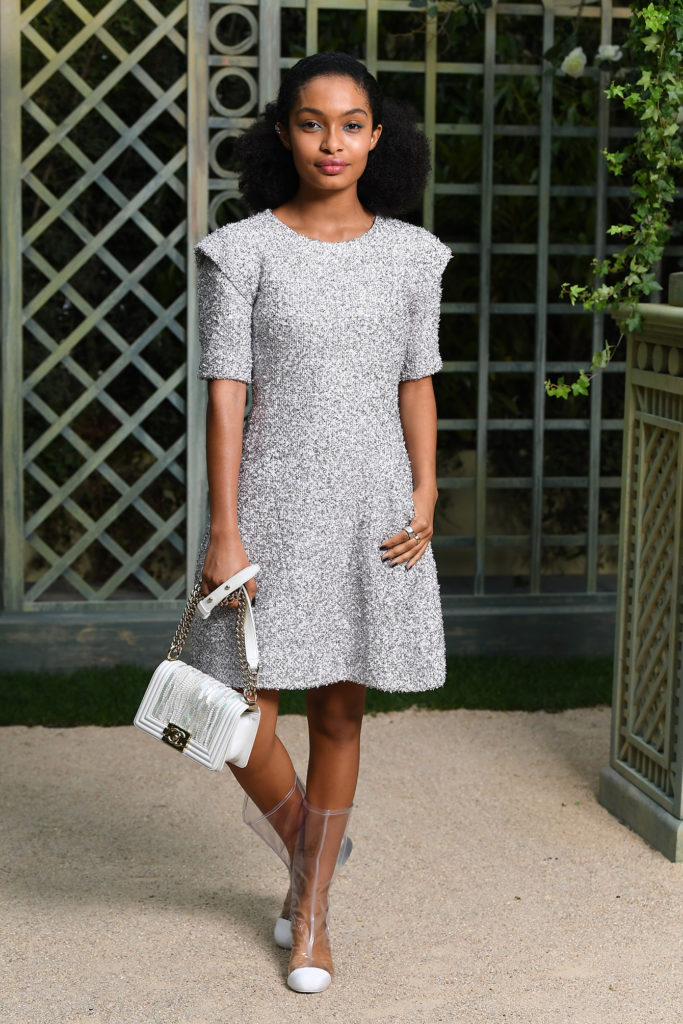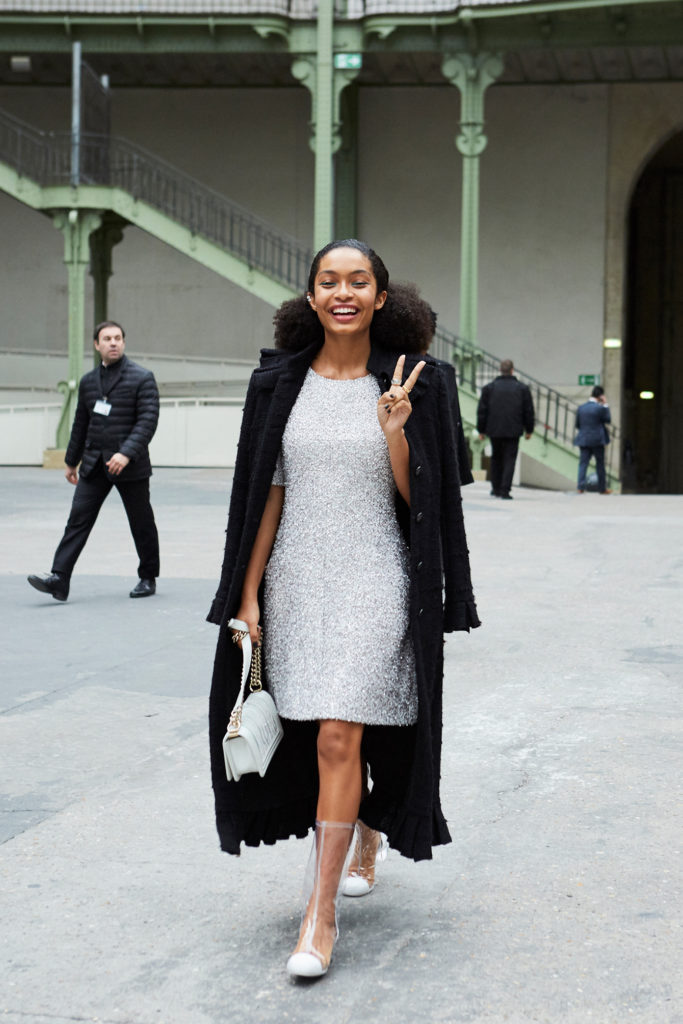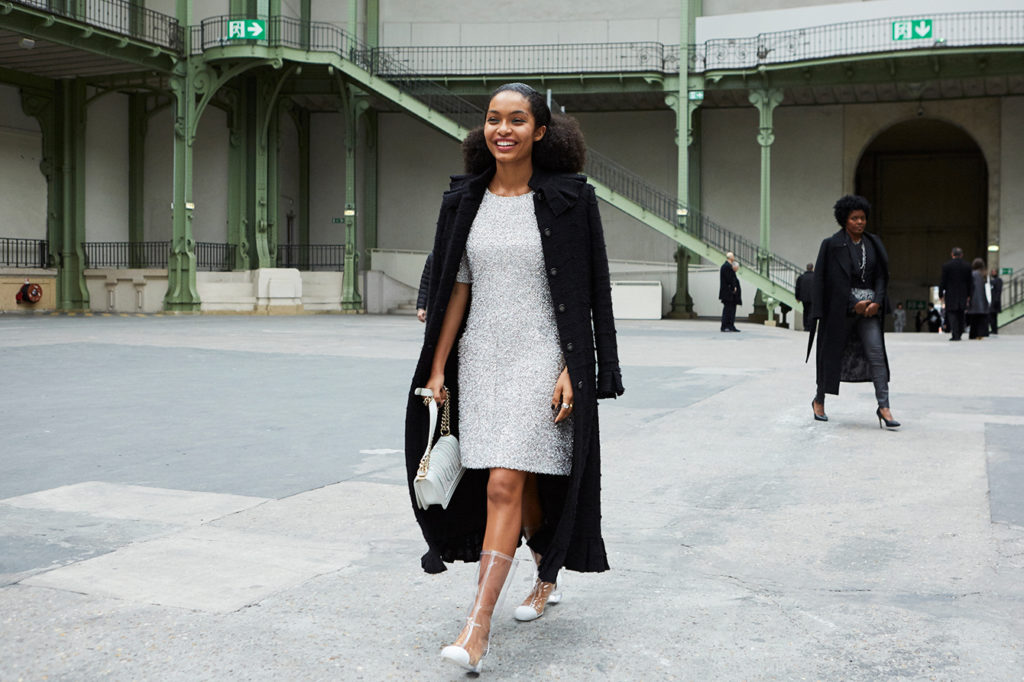As one of the new faces and ambassadors associated with Chanel, Yara Shahidi embodies a lot of what the French house promotes: independence, intelligence, beauty inside and out, curiosity and, of course, style. While the actor and activist is a humble 17-year-old, Shahidi expresses herself with a conviction that’s highly desirable. We caught up with the Black-ish star (who’s also leading the way in the brand new spin-off Grown–ish) right after the Chanel Spring/Summer 2018 Haute Couture show in Paris to chat couture, Karl Lagerfeld, and the power of fashion.
 What did you think of Chanel’s Spring 2018 haute couture collection?
What did you think of Chanel’s Spring 2018 haute couture collection?
“I guess there was a level of practicality to each piece which I had to appreciate. I know it’s couture and that it’s supposed to be otherworldly in a certain aspect of speaking, but I appreciated just the idea that it was based in reality and not insane. I feel like we can envision ourselves as women in the actual pieces.”
How does the Chanel woman inspire you?
“The [Chanel] woman represents the idea of being self-made. Self-made isn’t the right word, not even self-dependant — self-realized. In that, there’s a certain semblance of having control over ones identity and appearance, and taking pride in who we’ve created ourselves to be.”
Now that you’re a seasoned showgoer, how do you feel your style has evolved?
“Just being at shows you realize how much fun one can have with fashion. I feel like shows, when you see them, they’re not exactly what you then see on the streets days later, but it does represent how important it is to have an outlook on what you wear, and how important it is for it to be driven from a place of self-expression. If anything, because it is an extension of who we are, I think what we wear is an extension of what the world sees of us. And not to say that what the world thinks of us should drive how we dress in any way, shape or form, but it’s helped me develop my outlook and what I care about, and how that translates to the clothes that I wear.”
 Who is your style hero?
Who is your style hero?
“I honestly have to say two things: One, I have a binder on my phone and it’s just called Aesthetic. The photos in there are of Sidney Poitier and Harry Belafonte from the sixties and James Baldwin—I can definitely say those are some style icons. Presently, I’d have to say Solange. I always say Solange and, again, that speaks to just her using fashion as a form of self-expression. The idea that she can pull off these insane outfits because they are “so her” really speaks to the idea that the outfit is not wearing you—it’s a collaboration.”
Is there an outfit that you’ve worn recently that you felt particularly powerful wearing?
“Quite honestly, it’s my political t-shirts and jeans. I have three large drawers full. My current favourite actually has no words on it. It’s just a picture of James Baldwin sitting on a chair. It’s one of the iconic photos of him sitting on a chair, in Paris actually, when he was writing here, and it’s one of my favourites because I love James Baldwin.”
You’ve been very vocal in promoting diversity in your field through social media and your activism. How do you feel the fashion world is addressing the issue of inclusivity?
“Representation is essential in terms of being able to look on TV and look in any space in your world and feel as though you’re reflected. It does directly correlate to opportunity and what opportunities are open to you, and more so the opportunities the world sees fit for you. So, in that case, it is essential and I don’t think anybody is quite perfect yet—we’re still figuring it out—but there’s still a lot of work in every area, from even my show to this show to any show. I always smile when I see new faces, other faces, faces that I resonate with and, at the same time, it’s just a symbol of the idea that this is the very beginning.”

